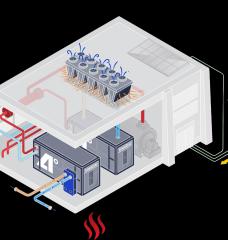
Today, an international group of the world’s leading climate scientists released a report on the impacts of raising Earth's global temperature by 1.5°C (2.7°F).
Key takeaways:
- If we continue with business as usual, we will reach 1.5°C of warming between 2030 and 2052 -- which is within many of our lifetimes.
- If the world continues to warm beyond 1.5°C, we will start experiencing extreme and potentially irreversible changes, like the loss of some marine and coastal ecosystems, more extreme weather, more heat-stroke days, and the complete loss of the world's coral reefs.
- Limiting global warming to 1.5°C is possible, but requires net zero CO2 emissions by 2055, which would require a massive global mobilization effort.
Quick reads about the report:
- IPCC's headline statements (3 pages of bullet points)
- Popular Science article
Longer reads:
- Summary for policymakers (34 pages of bullet points)
- IPCC official page on the report
When we hear news like this, it can be hard to know how to react. Yale Climate Connections produced this nine-minute video on how emotions related to climate change are similar to those experienced by trauma patients -- and how we need to talk about them. MIT alum and co-founder of the climate modeling and education group, Climate Interactive, co-authored an opinion piece in the New York Times titled, Stopping Climate Change Is Hopeless. Let’s Do It.
What are you reading? How are you reacting?






